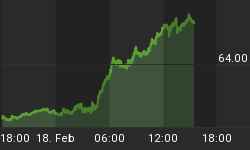
Jim Cramer from CNBC: "We all know it's going to end badly, but in the meantime we can make some money." Thank you Mr. Cramer for telling us the truth about QE and our economy.
Stan Druckenmiller, Legendary Hedge Fund Manager, on CNBC 03/05/2013: "I don't know when it's going to end. But my guess is it's going to end very badly."
The media encourages us to believe that practically everything in our economy is either good or getting better. Another way of stating the media hype is "all of our problems will be solved through the combined efforts of our capable politicians coupled with the wisdom and competent management of The Federal Reserve."
Seriously? Congress has a miserably low approval rating, for good reason, and the Fed is busy creating and pumping money into banks and the bottomless pit of government spending. Neither has much interest in small businesses or the average American.
What is going wrong? In no particular order, here are a few that come to mind:
-
John Mauldin as stated by his friend Juan Carlos: "In Argentina, we have the ability to make the same mistake many times, and nothing happens to change things. Why? Because there is a pervasive belief that the state can provide all that people need: jobs, welfare, everything." This should sound familiar to Americans and Europeans? Don't forget that Argentina has inflated their currency to near worthlessness several times in the last 30 years. It also could happen here.
-
Ellen Brown, February 24, 2013: "Quantitative Easing (QE) is supposed to stimulate the economy by adding money to the money supply, increasing demand. But so far, it hasn't been working. Why not? Because as practiced for the last two decades, QE does not actually increase the circulating money supply. It merely cleans up the toxic balance sheets of banks. A real 'helicopter drop' that puts money into the pockets of consumers and businesses has not yet been tried."
-
Official National Debt is approaching $17 Trillion and increasing about 12% per year. Is the economy growing in excess of 12% per year? Clearly not! Maybe debt can increase to infinity without horrible consequences, but I doubt it.
-
Unfunded liabilities for Social Security, Medicare, Medicaid, government pensions, etc. are estimated at $70 Trillion to well over $200 Trillion, depending on who is counting and what assumptions are used. The actual total does not matter since even the lowest estimate is unpayable. So we have an overwhelming liability that is beyond the capability of the economy to pay, and we continue to spend as if the country had $70 Trillion in excess assets instead of $70 Trillion in unfunded liabilities.
-
Nearly 49,000,000 Americans are currently on food stamps (SNAP). What about this indicates economic strength and healthy growth?
-
The Senate has not passed a budget in several years. Apparently there is no need for a budget. You know the old saying, "We must have money left - there are still checks in the checkbook."
-
Bob Rinear: "If the Fed's do not continually shoot juice into the system, we'll get flushed down the toilet. So they have made it quite clear that they will use 'every manner possible, both conventional and non-conventional' to keep the economy from a deflationary depression." In other words, there is an excess of debt and the economy cannot produce enough to pay for current expenses, government, wars, interest on debt, and old debts going bad. Hence, the Federal Reserve must create a huge amount of new money each month to "fill the hole." If the economy and the banks were healthy, would the Fed need to pump $ Trillions into the banks and to monetize government debt?
-
According to Shadowstats, which calculates unemployment and inflation as they were calculated about 30 years ago, the non-politicized unemployment rate is about 23% and the inflation rate is about 9.2%. These numbers seem more real than the official numbers. A healthy economy does not have 23% unemployed and nearly 10% inflation in real costs.
So What Do We Do?
-
Remember what Jim Cramer said, "We all know it's going to end badly, but in the meantime we can make some money." You can make some money in fixed assets that will appreciate as the Fed monetizes debt.
-
Trust your instincts and observations more and government statistics and the mainstream media less.
-
Put your savings and retirement, if possible, into investments that will benefit from "printing money," money supply increases, economic decline, currency wars, devalued paper currencies, and out-of-control government spending. Gold, silver, farmland, some real estate, diamonds, crude oil, food, and many more come to mind.
-
Some of the extra liquidity created by the Fed is finding its way into the stock market. Hence, the Dow just made a new high and is much higher than its crash low four years ago. When will the "juice" run out? In the meantime, more central bank liquidity feeds market strength. Don't fight the Fed! More QE will occur - it could "juice" the stock market higher and almost certainly will "juice" gold and silver, which are at significant lows and ready to rally.
-
Read Ten Steps To Safety.
-
Gold and silver have been a store of value for over 3,000 years. ALL paper money systems throughout history have eventually failed. Do you want to risk that the US Dollar and the Euro will be the exceptions? Put some money into gold and silver. They are insurance, value investments, and a safe way to preserve your purchasing power.
Think for yourself, and make good choices that work for your circumstances.















